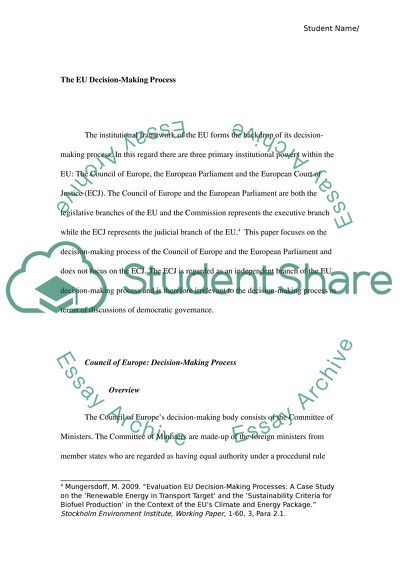Cite this document
(“Decision-making in the EU: transparency and democratic legitimacy Essay”, n.d.)
Retrieved from https://studentshare.org/history/1395020-decision-making-in-the-eu-transparency-and-democratic-legitimacy
Retrieved from https://studentshare.org/history/1395020-decision-making-in-the-eu-transparency-and-democratic-legitimacy
(Decision-Making in the EU: Transparency and Democratic Legitimacy Essay)
https://studentshare.org/history/1395020-decision-making-in-the-eu-transparency-and-democratic-legitimacy.
https://studentshare.org/history/1395020-decision-making-in-the-eu-transparency-and-democratic-legitimacy.
“Decision-Making in the EU: Transparency and Democratic Legitimacy Essay”, n.d. https://studentshare.org/history/1395020-decision-making-in-the-eu-transparency-and-democratic-legitimacy.


